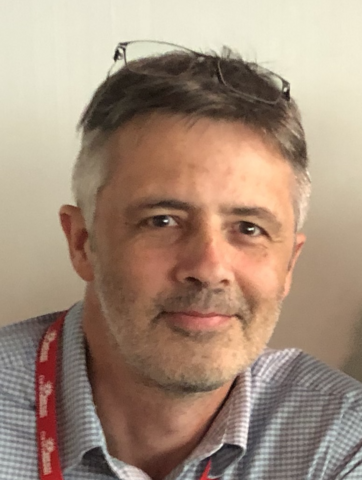Timothy C. Cox

Timothy C. Cox
Professor Timothy Cox joined the UMKC Dental School faculty in 2018 as the Endowed Chair in Mineralized Tissue Research in the Department of Oral and Craniofacial Sciences and in 2019 he received a joint appointment in the School of Medicine’s Department of Pediatrics.
Dr. Cox earned his BS (majors: Biochemistry & Immunology)(’89), BS [Honors] in Biochemistry (’90) and PhD in Molecular Genetics (’94) from the University of Adelaide, Australia. Following his PhD, Dr Cox had a brief stint in an Australian biotechnology company using ES cell technologies to address the challenges associated with organ rejection following xenotransplantation. He was then awarded one of 14 Australian Fellowships to undertake postdoctoral training overseas in human genomics at both Baylor College of Medicine, Houston (Texas) and the Telethon Institute of Genetics in Medicine (TIGEM) in Milan (Italy) just as the Human Genome Project was taking off. Under the same fellowship program, he then returned to the University of Queensland (Australia) to pursue his interests in Developmental Biology, before being awarded 1 of 4 Australian Medical Research Council Fellowships to begin his own group at his alma mater, the University of Adelaide. It was during this time Dr Cox was appointed the Director of genetic programs at The Australian Craniofacial Unit (an International Centre of Excellence for the management of craniofacial deformity). After 8 years, he accepted a tenured position at Monash University and became the co-director of MouseWorks the highly regarded mouse genetic modification facility. In 2006 Timothy was recruited to the University of Washington/Seattle Children’s Research Institute in Seattle, where he rose to full professor in pediatrics and the inaugural holder of the Laurel Endowed Chair in Pediatric Craniofacial Research.
He has held numerous positions in international & national societies, including President of the Australia & New Zealand Society for Cell & Developmental Biology and Treasurer of the Society for Craniofacial Genetics & Developmental Biology. He has been a regular grant reviewer and standing member of NIH Study Sections for over 10 years as well as reviewing for funding agencies in Europe and Australasia for nearly 20 years. He is on the editorial board of a number of journals, including Frontiers in Craniofacial Biology & Dental Research and Scientific Reports and has reviewed manuscripts for over 50 different international’s al journals. Dr Cox's research has been a strong training ground for researchers interested in translational sciences. In this regard, he has mentored and trained some 40 undergraduate students and 30 postgraduates, with many of the postgraduates receiving NIH fellowship support and various local, national and international awards including the IADR International Hatton Award. Furthermore, a number of his trainees have gone on to hold senior research positions and/or their own labs around the world. Dr Cox has published over 120 papers and his lab has received continuous federal funding since 1997 in both Australia and the US.
Dr Cox's research interests are in both basic and translation sciences, including in understanding genetic and epigenetic contributions to craniofacial development and influencing susceptibility to, and presentation of, common craniofacial conditions, such as cleft lip, midface hypoplasia and craniofacial microsomia. Dr Cox’s research uses both the mouse and chick as model systems and quantitative high-resolution 3D tomographic imaging to qualitatively and quantitatively assess the impact of genetic mutations and maternal diet on early facial morphogenesis and its postnatal consequences. Part of his lab is also focused on providing new insight into the genetic basis of the aforementioned human conditions by employing the latest genomic sequencing tools on relevant patient cohorts in partnership with local, national and international collaborators.
